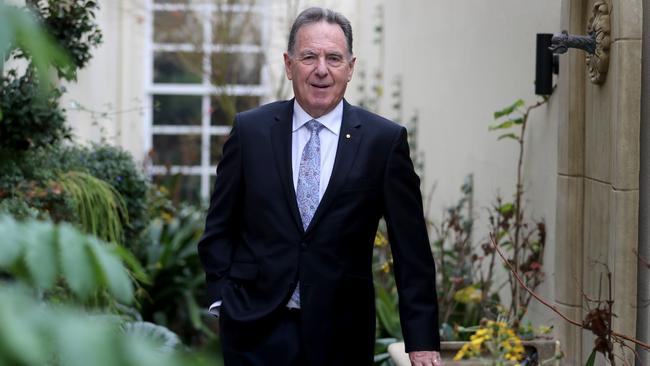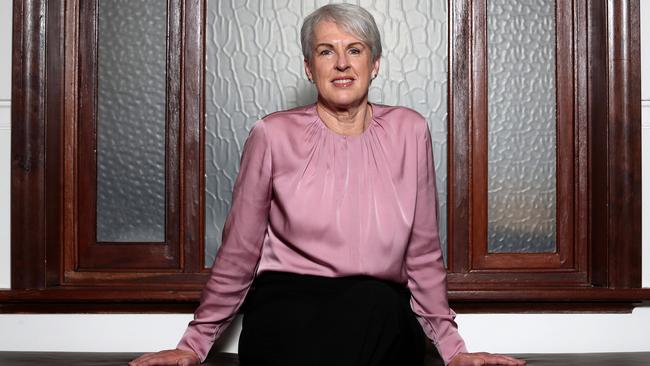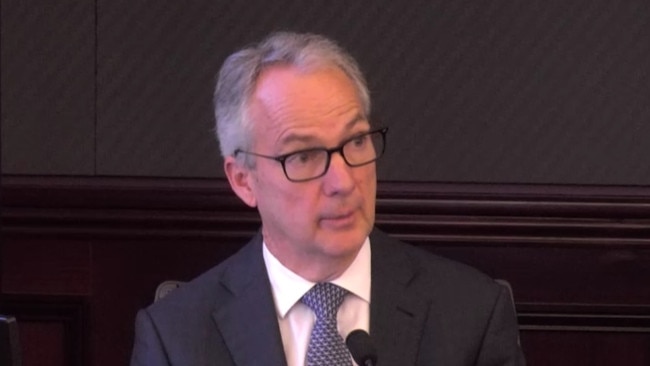Graeme Samuel disputes APRA over whether it’s implemented performance recommendations
APRA is yet to adequately address issues about its performance raised in a scathing 2019 assessment, says the man who chaired the review.
The Australian Prudential Regulation Authority is yet to adequately address issues about its performance which were raised in a scathing 2019 assessment.
That’s the view of Graeme Samuel, who chaired the in-depth review of APRA published in mid-2019, and who formerly ran the Australian Competition and Consumer Commission for eight years until 2011.
Mr Samuel said he had hoped APRA would have given the assessment more attention, as he was flanked on the review by “well-regarded” people – assisted by senior officers of Treasury, and informed by an extensive interview process and staff survey.
“You would have thought a review of that nature would demand and merit careful introspection by APRA but my perception is that didn’t take place,” he told The Australian.
Mr Samuel undertook the APRA Capability Review alongside well-known ASX company director Diane Smith-Gander and Reserve Bank of New Zealand’s former deputy governor, Grant Spencer.
It made 24 detailed recommendations, 21 of which were directed to APRA and the remainder to the federal government.

The review identified issues hindering APRA’s performance around culture, lack of transparency, variability in leadership capability and the capacity to implement change.
Several recommendations called for changes to the regulator’s structure and a stronger approach to enforcement, an issue which was highlighted by the Hayne royal commission into the financial sector.
The review labelled APRA’s behind-the-scenes approach to engagement with banks, insurers and superannuation as limiting “its impact and authority”.
“There are good reasons for a prudential regulator to be discreet, particularly in cases of acute financial stress. However, APRA needs to shift the dial towards a more strategic and forceful use of communication to ensure that it maximises its impact with regulated entities,” the report said.
“Its enforcement approach should move it in this direction.”
However, APRA and its outgoing chair, Wayne Byres, believe they have addressed the bulk of the review’s recommendations – although two recommendations which incorporate several parts, are outstanding.
“Of the 21 Capability Review recommendations directed to APRA, 19 have been closed. Work is substantially complete on the remaining two recommendations (which are each divided into multiple parts), and is on track to be fully implemented by the end of 2023,” an APRA spokesman said.

But there seems to be a grey area in APRA’s interpretation of which recommendations have been closed.
The review urged APRA to build on the Commonwealth Bank Prudential Inquiry and company self-assessments by “embedding CBA-style prudential inquiries” as an ongoing part of its supervision.
The 2019 report said: “The panel would expect to see several prudential inquiries in the first few years to reinforce the need for rigorous self assessments.
“In time, the inquiries should involve retail and industry superannuation, insurance and ADI (Australian deposit-taking institution) entities.”
In its response to the review, APRA highlighted the cost of the recommendation and said the precise number of company reviews would depend on overall resourcing.

No prudential inquiries — as mentioned above — have been conducted since 2019, but the regulator counts that recommendation as closed or implemented.
While APRA has restructured supervisory divisions across industry lines — banking, insurance and superannuation – as recommended, it is yet to revise management structures and levels to widen control and boost efficiency, speed of decision-making and empowerment.
Asked on Wednesday whether APRA had done enough to address the review’s recommendations and concerns about culture, Mr Byres said: “You never say job done, but I think we’ve done a lot on that score.
“We’ve refreshed the leadership, we’ve done a lot of work on our internal culture, produced new forums to allow for challenge and debate on issues.
“We’ve responded to that, but you can never be complacent … In the same way that we would say to any financial institution we regulate, you don’t declare victory.
“We’ve done a lot of work internally … I think the results we get from staff surveys, engagement surveys and other things tell us that’s had a very positive impact.”

Another review recommendation not yet implemented relates to embedding the 2018 self-assessment process undertaken by APRA-regulated companies of their governance and culture, into a “more intense supervision” of those risks by making it a biennial requirement.
Some of the staff survey responses published in the Capability Review were concerning. “APRA does not have a continuous improvement mindset and is change resistant,” one employee said.
Another said: “When institutions are consistently able to get a different result by appealing to GM (general manager) levels and above, line supervisors become demoralised and institutions become emboldened to push the limits.”
The next review of APRA will be undertaken by the Financial Regulator Assessment Authority. It is led by former Macquarie Group chief Nicholas Moore.








To join the conversation, please log in. Don't have an account? Register
Join the conversation, you are commenting as Logout